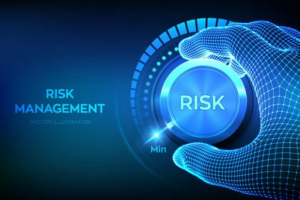The Promise and Perils of Blockchain

Blockchain is an emerging technology that could radically change society for better or worse, depending on how we choose to develop and apply it. On the one hand, blockchain promises to disrupt industries by enabling greater transparency, efficiency, and inclusion. But without prudent management and oversight, blockchain also poses risks that threaten privacy, security, and economic stability. The future of blockchain remains in our hands and hearts – whether open or not.
Blockchain holds opportunities to streamline and democratize critical systems across sectors like finance, healthcare, and education. Blockchain allows for faster, more transparent payments, secure sharing of electronic medical records, and verifiable lifelong learning credentials. These applications could increase access and reduce costs by eliminating unnecessary intermediaries. However, most existing blockchain platforms remain limited proofs-of-concept. Significant barriers around performance, privacy, interoperability, and scalability must be addressed before mainstream adoption.
While blockchain may transform businesses and models for the better, implementing the technology requires substantial time, money, and expertise which are often in short supply. The shortage of blockchain engineers and developers has slowed some enthusiasm. Regulatory uncertainty also poses risks to innovators without clear guidelines. But regulation must not stifle promising use cases or concentrate power and benefit in the hands of a few. With shared standards and governance, blockchain could revolutionize systems that uplift society. But we must guide its progress and not just its power or pace alone.
The open infrastructure of blockchain also brings both opportunities and challenges. On the one hand, blockchain reduces control by traditionally centralized authorities like banks, hospitals or universities. But its trustless mechanisms rely on resource-intensive algorithms that struggle to scale, and without governance chaos emerges on open networks. Blockchain could decentralize systems and democratize society if designed ethically and responsibly. But controls and oversight matter equally to secure technology meant to empower and not imperil shared progress.
Overall, blockchain faces a pivotal moment where the very promise depends on overcoming real and complex challenges, together. Short-term interests will not guide its purpose or pace long enough. This transformative technology calls for shared values and moral wisdom to shape a future bright. Through courage of conscience, blockchain may yet forge a future where more inclusive markets and accessible networks seed opportunity and uplift humanity. But we must stand together directing and not just unleashing its revolutionary power. Intent and action shape shared destiny. The future is a choice we make – ready or not, and willing, first, to understand. Our moment awaits this simple start: open minds and determined hearts. The rest remains mere tools that build the world our values dare to dream. Progress is now if we so choose. Let us begin.






